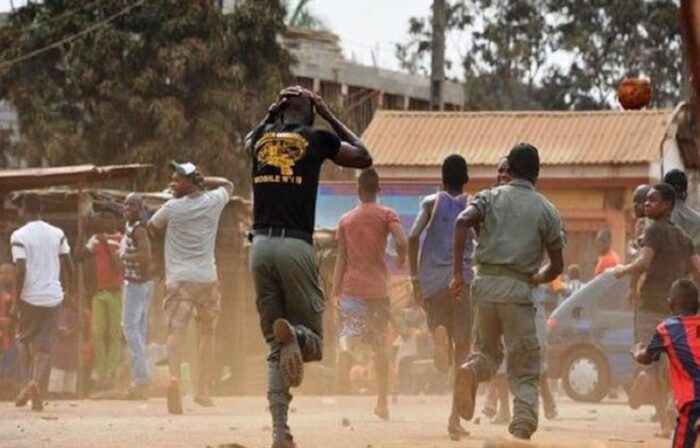Rural settlements in Nigeria used to be one of the safest and the most peaceful places to live. Such that, you feel safe to mingle with strangers in villages, unlike in cities and there is no course for alarm when you miss the route to your destination. This status of the rural settlement has quickly changed to a new one. One that has added kidnapping and rural banditry to the existing urban banditry ravaging the country; making rural settlements one of the most dreaded places to be. Thus, increasing rural-urban migration, eroding trust between rural and urban dwellers, and increasing food insecurity as rural farming produces most of the crops and livestock that feed the nation. The transformation has been very fast; mainly due to massive corruption and high level of insincerity associated with activities of most government agencies established to improve the infrastructural, social and educational status of rural settlements.
Currently, the fight against insecurity is dominated, mainly by the federal government as even the semi-armed civilian groups, usually in the rural areas are volunteers and directly answerable to the Nigeria security forces. In some states, these semi-armed civilian groups are members of vigilante groups that get little or no recognition from the local or state government.
In almost all states with high level of insecurity, there are self-volunteered, semi-armed civilian groups policing their communities. Thus, indicating that, actually there is community police in Nigeria. In some communities, members of the semi-armed civilian groups have over time acquired significant knowledge on different types of criminality, arms and use of arms; that if let loose, they could pose serious security threat to the nation. Especially, with the current proliferation of arms and light weapons in the country. The experience of a community vigilante group turned urban bandits, by the Bakassi Boys; still remains fresh in our memories.
Community members and the armed forces rely heavily on the activities of this groups, and thus, they deserve public commendation and support to improve their service delivery. In reality, an elementary system of community policing actually exist in various communities; the state governors only need to integrate the groups from different communities and further organise them to become the community police of our desire. Undoubtedly, community policing will go a long way in reducing the activities of bandits, kidnapping and insurgency.
Since the commencement of insurgency, banditry and kidnapping, the battle field had been the rural communities; and the fight had been with the use of arms by our armed forces. While the armed forces are dealing with insecurity in their own ways, there is the need to consider other alternative means of combating this crime; one that will make all citizens more responsible and governments more committed. Such system is the use of advocacy. This system should be driven by intellectuals with sound understanding of the Nigerian rural life, advocacy and conflict resolution. These individuals should be brought to a round table to come up with strategies that will specifically guide and task the government on steps to take in the fight against insurgency, banditry and kidnapping. This team should willingly adopt the responsibility of developing a blueprint that will complement the efforts of government and make the fight more holistic.
The advocacy system should establish a strong network with members in every state, local government area, district and political ward. The system should be established and anchored by organisation(s) with identity that are directly linked to the main objectives of bringing an end to the insecurity. Similarly, the system should be piloted by people that are ready to bear a face that carry the said objectives; just like it is with the Bring Back Our Girls (BBOG) project. The advocacy group must task governments at all levels on the need to be more proactive and sincere in protecting the lives of citizens and developing the rural communities.
The advocacy team must use its network of journalists, crop and livestock farmers to get relevant information and data related to insurgency, banditry and kidnapping. The group must promptly act on intelligence and information it gets by communicating with relevant security agencies, its medical team or team of journalists for swift action. Instances where information on impending attacks receives trivial attention or bandits attack rural dwellers unchallenged must be stopped. Relevant data must be sourced to assess damage, impact and implication of banditry and kidnapping in the entire country. Loss of lives, human right violations, financial losses, corruption and the roles of government and community leaders in relation to banditry and kidnapping must be well researched upon to understand their impact in the crisis.
For now, the information available with respect to the killings in the North-west is disorganised, confusing, incomplete and conflicting. The aim of wasting lives mercilessly is not clear; the extent and reason for local collaborators and foreign involvement is yet to be comprehended. This team could make such facts available to the public.
The role every individual plays in the menace should be investigated, especially by journalists; quantified in terms of loss of lives and economic losses by statisticians; and the government made to immediately address these security gaps. For instance the link between solid minerals and banditry should be well expatiated and the government mandated to bring all perpetrators to book. Moreover, if this information is available, the team can mobilise and lead citizens to make specific, problem-solving demand to the government. Implementation of such specific demands by the government can easily be monitored, unlike the current general demand to end the killings. This has only yielded a fluctuation in the patterns of the killings over time. For instance, the advocacy team with the support of other citizens should pressurise the government to do more in protecting and fixing our porous borders and the proliferation of heavy arms and light weapons in our communities.
Subsequently, the government must be made to sincerely improve agriculture, infrastructure and educational status of all rural communities. We must shun corruption which is the most important challenge responsible for every calamity Nigerians have led Nigeria to. The advocacy system must enlighten rural dwellers on the need to be upright in the utilisation of funds given to them by the government as support to develop their agricultural activities. They must be encouraged and motivated to resist corruption, even if they are tempted to do so by family, friends and corrupt government officials. They must be advised to embrace education.
Since the inception of this crisis, attempt at providing solutions have been centred on the government with the rural dwellers being the main victims. It is time we adopt an alternative approach to complement and make the current approach more fruitful. It may seem difficult, but success is certain if we work hard at it. An important hydra-headed monster that must be dealt with by any means necessary for the success of this journey is bigotry due to religious, political, regional, tribal and ethnic sentiment. Daily, the situation is worsening in geometric progression and so the time to start was yesterday. With this approach, we the citizen can make informed contributions and give focus to any government in power to end this menace. This approach may help uncover a lot of mysteries that mars the security situation in Nigeria. The mystery if unveiled may be the solution to this challenge. This or any other approach that will end the current menace of insurgency, banditry and kidnapping has to be developed and embraced by all Nigerians, irrespective of religion, political interest, region, tribe or ethnicity.
All parts of Nigeria must wholeheartedly key into search for an alternative workable solution to complement the existing one. Rural communities that can accommodate kidnapping and banditry are in all parts of the country, thus if we do not end the current insecurity challenges, it may see to our end. It’s a wild fire and the susceptible pieces of land are everywhere.
Dr. Habibu is a lecturer with Ahmadu Bello University, Zaria, Kaduna State and can be reached via [email protected]











